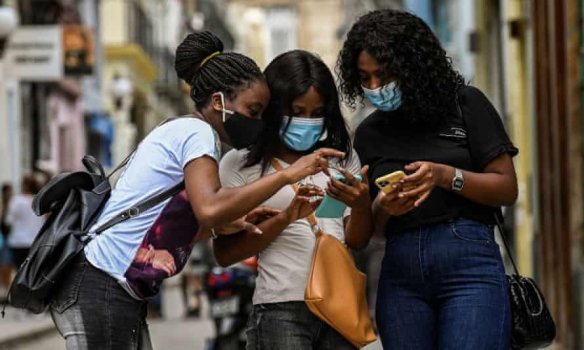K
Kathleen Martin
Guest
A failure to ensure women have equal access to the internet has cost low-income countries $1tn (£730bn) over the past decade and could mean an additional loss of $500bn by 2025 if governments don’t take action, according to new research.
Last year, governments in 32 countries, including India, Egypt and Nigeria, lost an estimated $126bn in gross domestic product because women were unable to contribute to the digital economy.
The digital gender gap – the difference between the number of women and men who can access the internet – cost $24bn in lost tax revenues in 2020, which could have been invested in health, education and housing, said the report.
Phumzile Mlambo-Ngcuka, former executive director of UN Women and founder of the Umlambo Foundation, said: “We will not achieve gender equality until we eliminate this digital gap that keeps so many women offline and away from the opportunities the internet provides.”
The study, conducted by the World Wide Web Foundation and the Alliance for Affordable Internet (A4AI), looked at 32 low- and lower-middle-income countries, where the gender gap is often greatest.
In those countries, a third of women were connected to the internet compared with almost half of men. The digital gender gap has barely improved since 2011, dropping just half a percentage point from 30.9% to 30.4%. Globally, men are 21% more likely to be online than women, rising to 52% in the least developed countries, said the report.
Various barriers prevent women and girls from going online, including expensive handsets and data tariffs, social norms that discourage women and girls from being online, fears around privacy, safety, and security and a lack of money – globally, women earn around 77 cents for each dollar a man earns.
Few governments have implemented specific policies to give women easier access to the internet, added the report. According to the A4AI’s 2020 Affordability Report, more than 40% of countries had no meaningful policies or programmes to expand women’s access to the internet.
Continue reading: https://www.theguardian.com/global-development/2021/oct/11/digital-gender-gap-cost-low-income-countries-billions-india-egypt-nigeria-women
Last year, governments in 32 countries, including India, Egypt and Nigeria, lost an estimated $126bn in gross domestic product because women were unable to contribute to the digital economy.
The digital gender gap – the difference between the number of women and men who can access the internet – cost $24bn in lost tax revenues in 2020, which could have been invested in health, education and housing, said the report.
Phumzile Mlambo-Ngcuka, former executive director of UN Women and founder of the Umlambo Foundation, said: “We will not achieve gender equality until we eliminate this digital gap that keeps so many women offline and away from the opportunities the internet provides.”
The study, conducted by the World Wide Web Foundation and the Alliance for Affordable Internet (A4AI), looked at 32 low- and lower-middle-income countries, where the gender gap is often greatest.
In those countries, a third of women were connected to the internet compared with almost half of men. The digital gender gap has barely improved since 2011, dropping just half a percentage point from 30.9% to 30.4%. Globally, men are 21% more likely to be online than women, rising to 52% in the least developed countries, said the report.
Various barriers prevent women and girls from going online, including expensive handsets and data tariffs, social norms that discourage women and girls from being online, fears around privacy, safety, and security and a lack of money – globally, women earn around 77 cents for each dollar a man earns.
Few governments have implemented specific policies to give women easier access to the internet, added the report. According to the A4AI’s 2020 Affordability Report, more than 40% of countries had no meaningful policies or programmes to expand women’s access to the internet.
Continue reading: https://www.theguardian.com/global-development/2021/oct/11/digital-gender-gap-cost-low-income-countries-billions-india-egypt-nigeria-women

